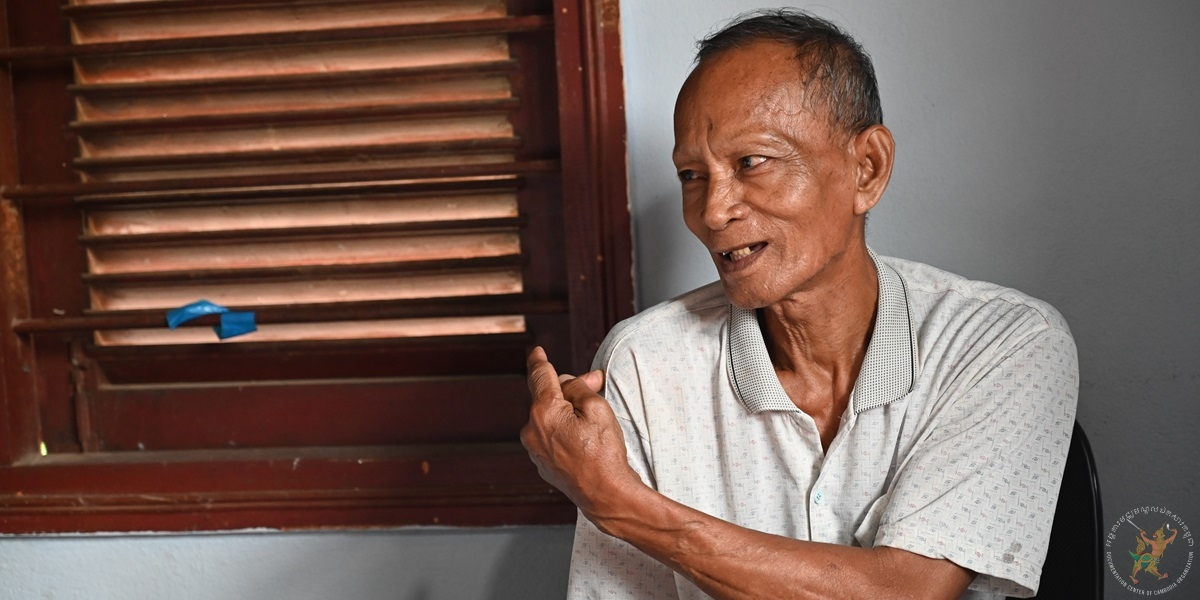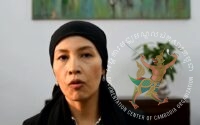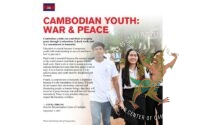SOK PHLOEUN

SOK PHLOEUN
Aged 75, was born in Preah Net Preah district, Battambang province, and currently resides in Banteay Meanchey. Presently, he lives in the Banteay Chhmar commune within Banteay Meanchey province. During the Khmer Rouge period he faced significant hardships. As the Khmer Rouge infiltrated the country, they conscripted Lon Nol-era soldiers, compelling them to undertake harsh tasks, such as operating plows, under the false accusation of being enemies. Mr. Sok Phloeun described how he witnessed the unfortunate demise of the commune chief and, tragically, Sok Phloeun’s cousin, Seng Hoeung, who also held the position of commune chief. The Khmer Rouge enforced the evacuation of residents from their hometowns, separating young individuals into mobile units, severing familial bonds, and leaving them with minimal belongings. The Khmer Rouge also coerced Buddhist monks into adopting agricultural roles, which represented a violation of Buddhist precepts.
Sok Phloeun was among those evacuated from the Preah Net Preah district at the age of 28 while serving as a Lon Nol soldier. When he encountered the Khmer Rouge, he was forthcoming in disclosing his identity, stating, “I was captured as a Lon Nol soldier,” and coupled with his unwavering dedication to diligent labor, the Khmer Rouge ultimately deemed him as loyal, which spared his life. Unfortunately, many other Lon Nol soldiers met a grim fate, falling victim to the Khmer Rouge’s violence. With tears in his eyes,
Sok Phloeun shared, “I lost my father and younger brother during the Khmer Rouge era.” His father, Sok Phlor, was a housekeeper. Meanwhile, his younger brother was arrested by the Khmer Rouge while tending to a field and tragically lost his life. Subsequently, the Khmer Rouge informed Sok Phloeun that they had mistakenly taken his younger brother’s life due to confusion.
Sok Phloeun further revealed that the Khmer Rouge guards, referred to as “spies,” were aged 15 or older. These individuals were born to loyal families but were subjected to the Khmer Rouge’s indoctrination, transforming them into ruthless agents capable of harming even their own parents and relatives. He recounted a heart-wrenching incident: “A mother, exhausted from work, resorted to stealing a crab for sustenance. Upon witnessing this, her own child reported her to the authorities, leading to her arrest and subsequent restraint. The child remained indifferent, showcasing the stolen crab to others as evidence of his mother’s transgression.” In terms of food during the Khmer Rouge era, Sok Phloeun explained that food was perpetually scarce. A single can of rice or porridge had to be shared among groups of 10 people. One can only imagine how this form of food rationing occurred in cooperatives with 100 members or more. Even a grain of salt was considered a luxury. Despite the abundance of rice, hunger remained pervasive in addition to the unceasing forced labor under the most inhumane conditions. In cases of illness, treatment was administered using reused needles, resulting in grim hospital scenes, with numerous corpses accumulating. Regrettably, due to a shortage of labor for grave-digging, some of these bodies were left unburied.
By Mann Sokhim
DC-Cam CamboCorps Volunteer Group 1
Published on October 10, 2023




